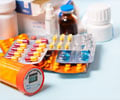
The US pharmaceutical industry is pushing for 12 years of "data protection" for a new class of drugs called "biologics", which are developed from living tissues rather than chemicals and are being used to treat illnesses such as cancer and diabetes.
Lobbyists for the industry say the measure, already part of US law, would encourage further research and development by enabling drug firms to recover their investments.
Australia, Brunei, Canada, Chile, Japan, Malaysia, Mexico, New Zealand, Peru, Singapore, the United States and Vietnam -- which together make up 40 percent of the global economy -- are currently part of the talks, but the TPP is open to other countries joining in the future.
"The vital lifeline of affordable generic medicines that millions depend on could be severely constrained by the terms of the trade pact," global humanitarian group Medicins Sans Frontieres (MSF), or Doctors Without Borders, said on the sidelines of the meeting in Singapore.
President Barack Obama has portrayed the TPP as the economic centrepiece of renewed US engagement in Asia, which also involves a shift in its defence posture in favour of the Pacific theatre.
Advertisement
The World Health Organization says about one-third of the developing world's people do not have access to essential medicines on a regular basis.
Advertisement
International charity Oxfam said developing countries negotiating the TPP, or joining it in the future, will be the most affected.
"The US is putting the interests of the drug industry above those of public health," said Rohit Malpani, Oxfam policy advisor on access to medicines in a statement this year.
He urged the US to "reconsider this approach because it undermines the sustainability of public health-care programmes and discredits trade itself as a tool for poverty reduction".
Global advocacy group Avaaz said a poll it commissioned showed 62 percent of Americans, 63 percent of Australians, 70 percent of New Zealanders, and of 75 percent Chileans opposed limiting access to generic medicines through the patent proposal.
But the lobby group Pharmaceutical Research and Manufacturers of America (PhRMA) said it was necessary for companies to recover investments and conduct further research into new cures.
It also said data protection should start from the time the new medicine is approved by regulators for release into the market.
Jay Taylor, PhRMA vice president of international affairs, told AFP it takes an average of 10-13 years and more than $1.0 billion in investments to develop a new cure, but not all research projects are successful and some could lead to financial losses.
"We do not view intellectual property (IP) as a barrier to access," Taylor said. "IP is a necessary catalyst for the development of new medicines."
The office of the US Trade Representative, which is leading the TPP talks, said this month it has offered a "differential approach" that will allow developing countries to defer full implementation of certain provisions of the pact.
"We believe the best approach to pharmaceutical (intellectual property rights) issues in the TPP would be one that offers countries flexibility based on their individual circumstances," it said on its website.
The USTR also defended its push to protect biologic medicines, saying that "those drugs require enormous amounts of time and money to develop".
"Before entrepreneurs in the United States and across the world are willing to make the investment in new therapies, they want to know that they will have rights to their own research for a certain period of time in order to see a return on their investments," it said.
Source-AFP










